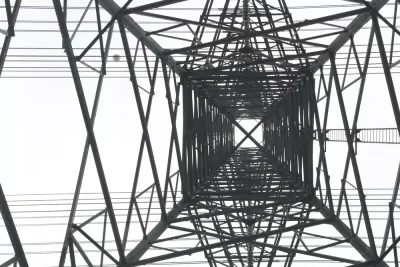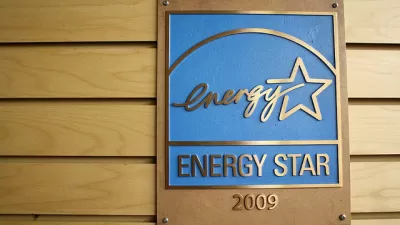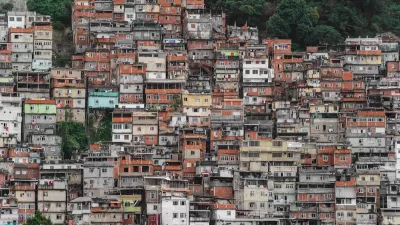Preventing electricity losses makes power generation more efficient. Those efficiencies translate into lower emissions.

A report published in Nature shows improvements in the world electrical grid to slow the progress of climate change. "In a new study, Jordaan and Surana estimate that energy lost in the grid results in the release of nearly a billion tons of extra carbon dioxide equivalents into Earth's atmosphere each year," Nala Rogers reports for Inside Climate. After energy is produced, it must travel to the place where it will be put to use. Much of the world’s energy is lost before it gets to the place it's needed. Existing technology could be used to improve grids and curb those losses that improvement in efficiency could translate into a big cut in the amount of carbon dioxide released into the atmosphere.
The problem of grid efficiency exists in the developing world and in the developed world, but the characteristics of grid efficiency vary by geaography. While countries like Haiti and Iraq lost an estimated half of their power before it was delivered, countries like the United States consume a much greater amount of power so small improvement translate into huge efficiencies. "For example, the U.S. lost about 6% of its power in 2016. The study suggests that by reducing those losses to 3.2%, Americans could cut their greenhouse gas emissions by about 29 million metric tons per year -- more than the total yearly emissions of Lebanon," Rogers reports.
The study is the first of its kind, and while some have challenged the scale of possible savings, even the study's critics were quick to concede the importance of the issue. The study's authors contend the estimates are conservative given the scale of the issue.
FULL STORY: Improving Electrical Grids Could Help Protect the Climate

Planetizen Federal Action Tracker
A weekly monitor of how Trump’s orders and actions are impacting planners and planning in America.

Congressman Proposes Bill to Rename DC Metro “Trump Train”
The Make Autorail Great Again Act would withhold federal funding to the system until the Washington Metropolitan Area Transit Authority (WMATA), rebrands as the Washington Metropolitan Authority for Greater Access (WMAGA).

The Simple Legislative Tool Transforming Vacant Downtowns
In California, Michigan and Georgia, an easy win is bringing dollars — and delight — back to city centers.

The States Losing Rural Delivery Rooms at an Alarming Pace
In some states, as few as 9% of rural hospitals still deliver babies. As a result, rising pre-term births, no adequate pre-term care and harrowing close calls are a growing reality.

The Small South Asian Republic Going all in on EVs
Thanks to one simple policy change less than five years ago, 65% of new cars in this Himalayan country are now electric.

DC Backpedals on Bike Lane Protection, Swaps Barriers for Paint
Citing aesthetic concerns, the city is removing the concrete barriers and flexposts that once separated Arizona Avenue cyclists from motor vehicles.
Urban Design for Planners 1: Software Tools
This six-course series explores essential urban design concepts using open source software and equips planners with the tools they need to participate fully in the urban design process.
Planning for Universal Design
Learn the tools for implementing Universal Design in planning regulations.
Smith Gee Studio
City of Charlotte
City of Camden Redevelopment Agency
City of Astoria
Transportation Research & Education Center (TREC) at Portland State University
US High Speed Rail Association
City of Camden Redevelopment Agency
Municipality of Princeton (NJ)





























